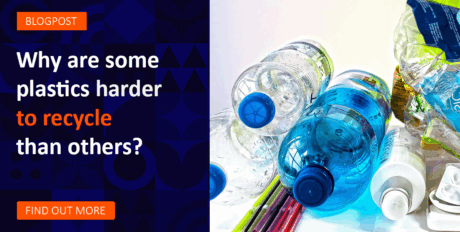Contact us today for your Free Quote
World Cleanup Day 2025: From Our Beaches to Our Wardrobes
World Clean Up Day is one of the most significant dates in the sustainability calendar. On Saturday, 20th September 2025, millions of people around the world will dedicate their weekend to making our planet a cleaner, healthier place. It’s World Cleanup Day, the largest single-day civic action in the world, and it’s a powerful reminder of our shared responsibility to protect our environment.
Since its inception in 2008, World Cleanup Day has grown into a global movement involving over 190 countries and 50 million volunteers. In 2023, 19.1 million people from 91% of all countries participated in World Cleanup Day, and 205,000 tonnes of waste were collected globally. This year, it is aimed to make an even bigger impact! While we often picture volunteers clearing plastic from our coastlines, this year’s event is asking us to look a little closer to home; at the clothes on our backs and the clutter in our closets.
This Year’s Focus: Tackling the Textile Waste Crisis
We are all aware of the devastating impact of plastic pollution. In the UK, households discard an almost unbelievable 100 billion pieces of plastic packaging each year. But there’s another, less-discussed waste crisis piling up: textiles.
Every second, the equivalent of a garbage truck full of clothing is either dumped in a landfill or incinerated. The fast fashion industry produces 92 million tonnes of textile waste annually, overwhelming waste systems and polluting our planet.
That’s why the theme for World Cleanup Day 2025 is “Tackling Textile and Fashion Waste Through Circular Fashion.” It’s a global call to confront the environmental toll of our clothing and rethink our relationship with fashion.
The True Cost of a Throwaway Culture
The fast fashion industry is a prime example of this invisible crisis. The convenience of a £5 t-shirt masks a staggering environmental price tag.
The production of textiles consumes immense quantities of water and energy, contributing significantly to global carbon emissions. Synthetic fabrics like polyester, now dominant in our wardrobes, are derived from fossil fuels and can take centuries to decompose in a landfill, leaching chemicals into the earth. The problem is systemic, but its consequences eventually become very visible.
Every time we wash these synthetic garments, thousands of invisible microplastic fibers are shed. They travel through our water systems, bypassing treatment plants, and flow directly into our rivers and oceans.
Connecting the Dots: From Our Wardrobes to Our Waterways
This is where the two crises textiles and traditional litter merge. The plastic bottle washed up on a beach and the synthetic fleece jacket hanging in your closet are not separate issues. They are cousins in the same pollution family, born from a linear “take-make-waste” culture.
The microplastics from our clothing join the larger plastics in our seas, contaminating marine ecosystems and entering the food chain. So when we head out to clean our beaches and communities, we are not just cleaning up after careless individuals; we are cleaning up the end-of-the-line consequences of a global system of overconsumption.
This year’s World Cleanup Day is about tackling the problem at both ends cleaning the symptoms from our environment while addressing the source in our habits.
Beach cleans
Our beaches remain a critical frontline in the fight against pollution. From the shores of Cornwall to the coast of Scotland, plastic bottles, fishing nets, and single-use plastics continue to wash ashore, posing a deadly threat to marine life. Now, we are also seeing the growing problem of textile waste appearing on our coastlines as microfibers from synthetic clothing pollute our waters.
Joining a beach clean on World Cleanup Day is one of the most direct ways to protect our precious marine ecosystems. You’ll not only prevent harmful waste from entering the sea but also send a powerful message that our oceans are not a dumping ground.
Community Cleanups
The spirit of World Cleanup Day extends far beyond the coastline. It thrives in our local parks, riverbanks, and city streets. A community cleanup is a fantastic way to make a visible difference right on your doorstep.
This year’s global campaign, “Strive for Five,” aims to mobilize 5% of the world’s population. It’s based on the theory that this is the critical mass of people needed to create lasting societal change. By organising or joining a cleanup in your local area, you become part of that powerful global movement, helping to build a cleaner community for everyone to enjoy.
How to Get Involved in World Cleanup Day 2025
Whether you have five minutes or the whole day, there are many ways to contribute:
- Clean the Symptoms: Find a local cleanup on the official World Cleanup Day map or organise your own. Every piece of litter removed is a direct win for wildlife and our communities.
- Address the Source: Host a clothing swap with friends to embrace circularity. Commit to learning a basic mending skill to extend the life of your clothes. Choose to support brands that prioritise sustainability and ethical production.
- Spread the Word: Use your voice and social media to raise awareness. Be part of the global “Strive for Five” campaign to mobilize 5% of the population. Talk about the connection between consumption and pollution. Share what you’re doing using hashtags #WorldCleanupDay, #VisibleWaste, and #InvisibleWaste to help spread this deeper understanding.
Partner with Bywaters
This World Cleanup Day, let’s expand our focus. Let’s clean our beaches, tidy our communities, and start a revolution in our wardrobes. Together, we can build a cleaner future, one piece of litter and one pre-loved t-shirt at a time.
As London’s leading recycling company, Bywaters is proud to support businesses and individuals in their sustainability efforts. Get in touch today to learn how we can help you take action this World Cleanup Day.
More posts:
Valentine’s Day: History, Tradition, and Its Modern Impact
This post traces the evolution of Valentine’s Day from ancient Roman rituals to a global commercial event. It highlights the holiday’s hidden environmental impact and offers a guide to celebrating sustainably through “Circular Romance” and waste reduction.
Read morePlastic Recycling: Why Are Some Types Harder to Process Than Others?
Some plastics recycle easily, while others are difficult or impractical to process at scale. This article explains why material type, packaging design, contamination and recycling infrastructure all play a role, and what businesses can do to improve plastic recycling outcomes in the UK.
Read moreThe Ultimate Guide For a Sustainable School and University
Download The Ultimate Guide For a Sustainable School or University. Get the roadmap to cut costs, reduce your carbon footprint, and boost your ESG profile with 5 core pillars.
Read more




